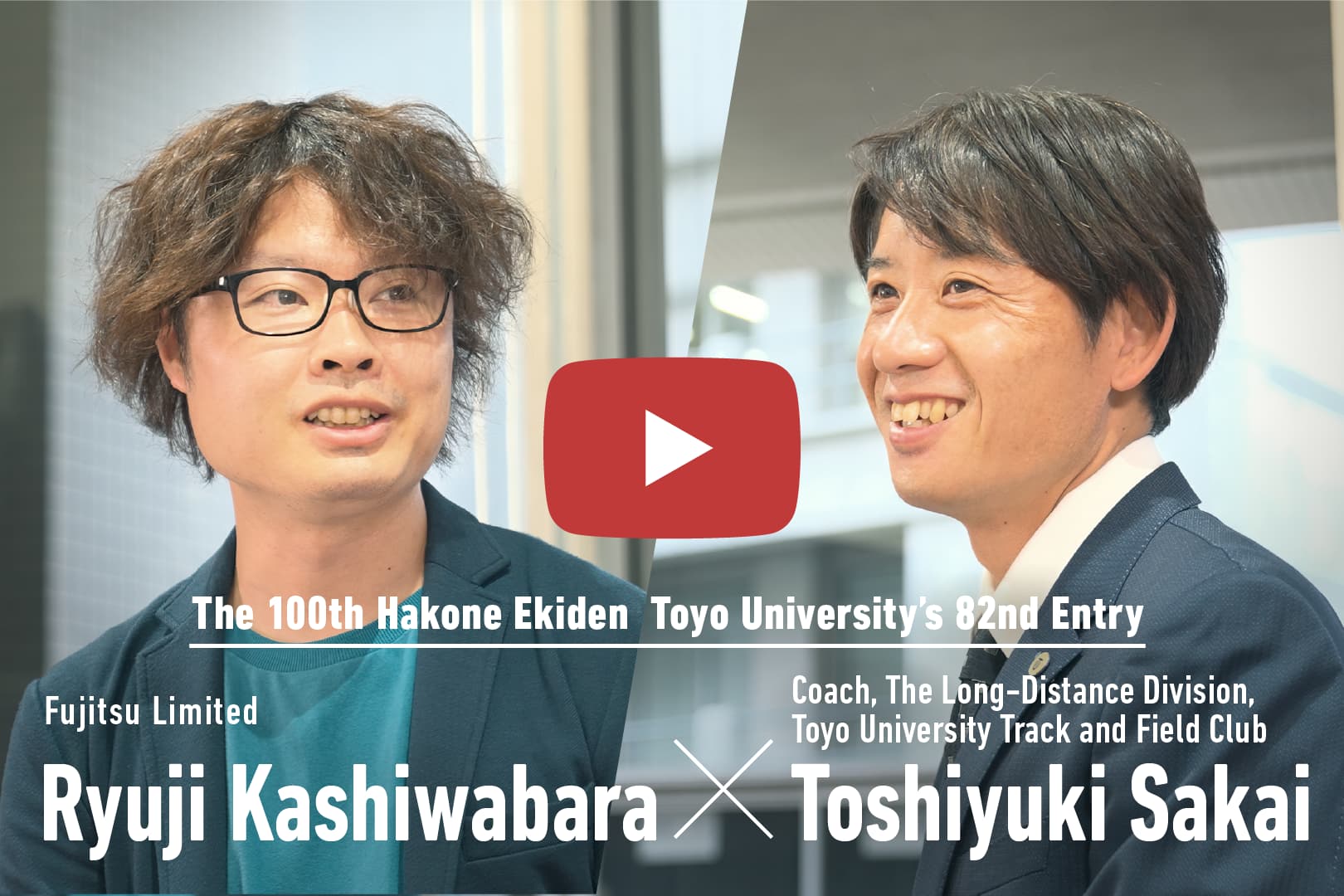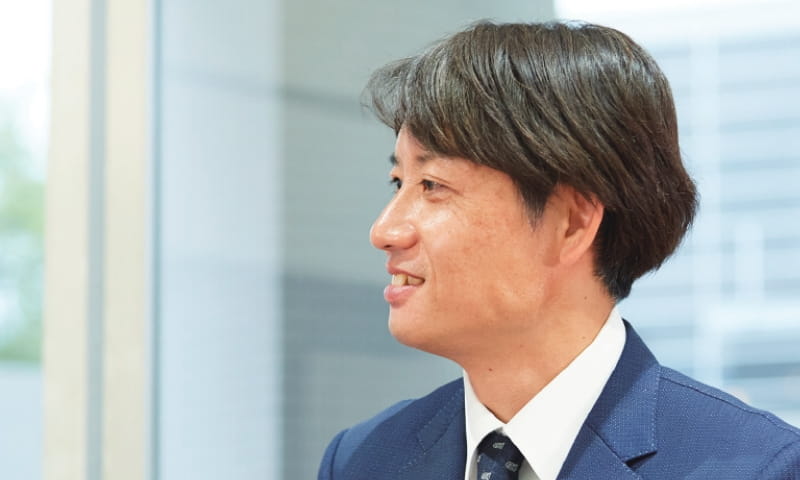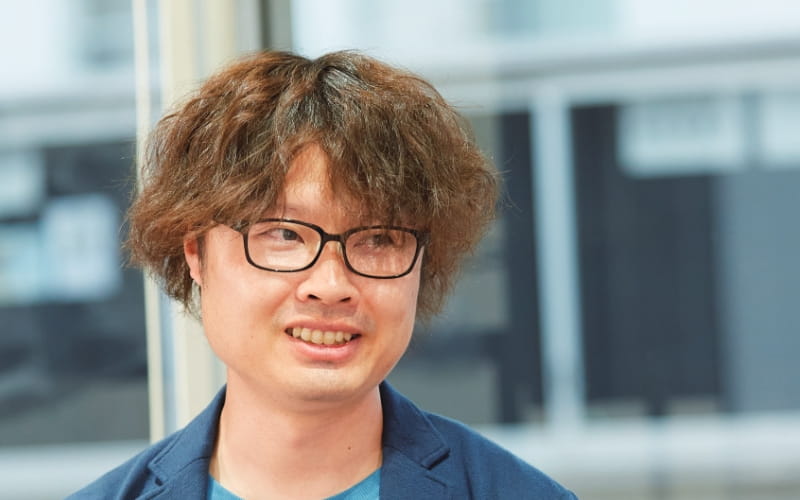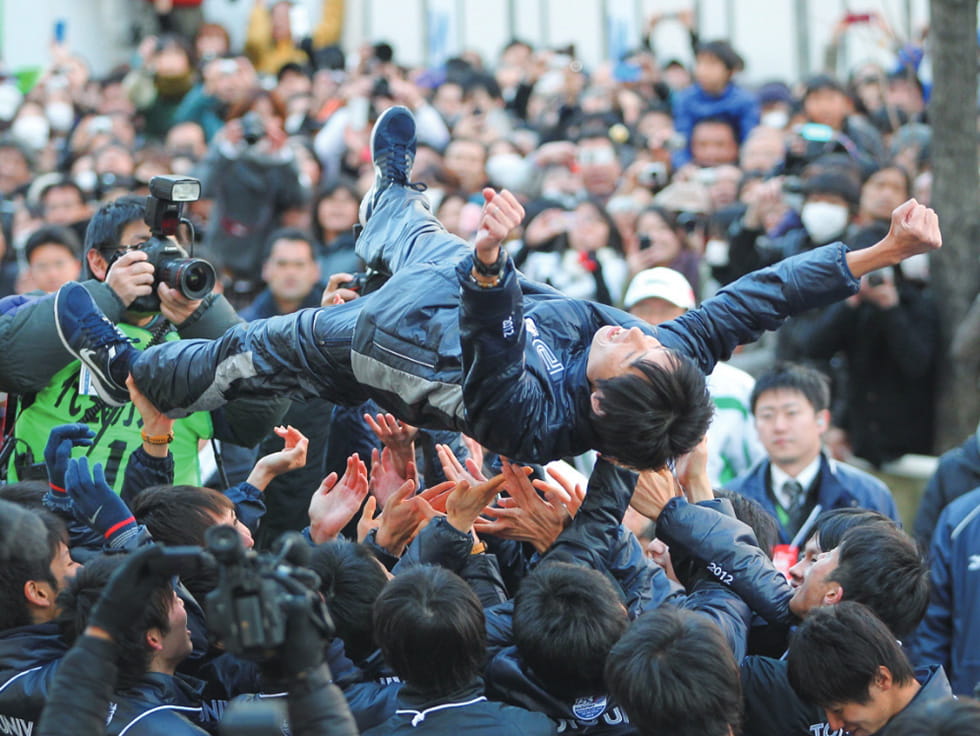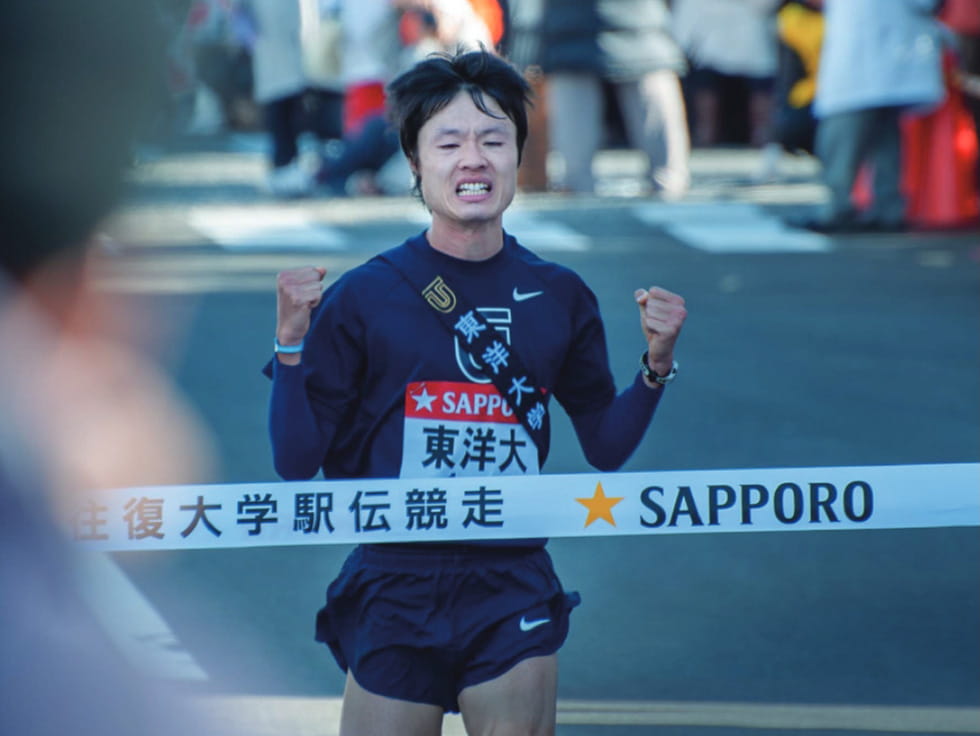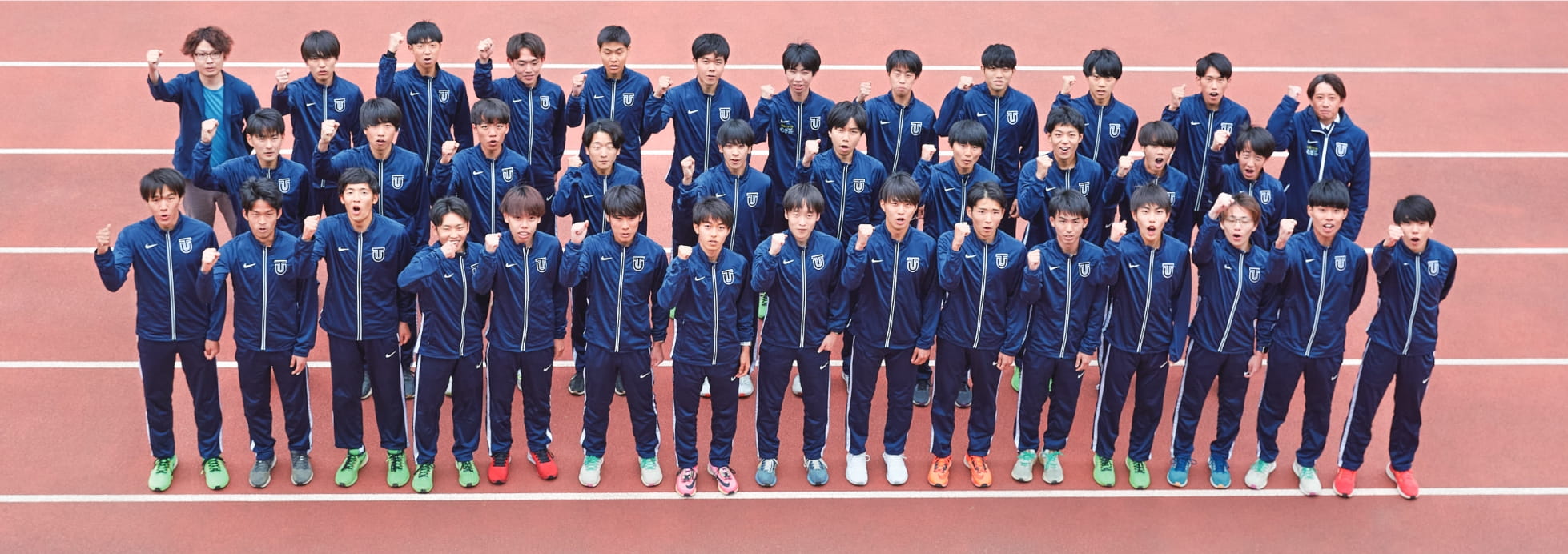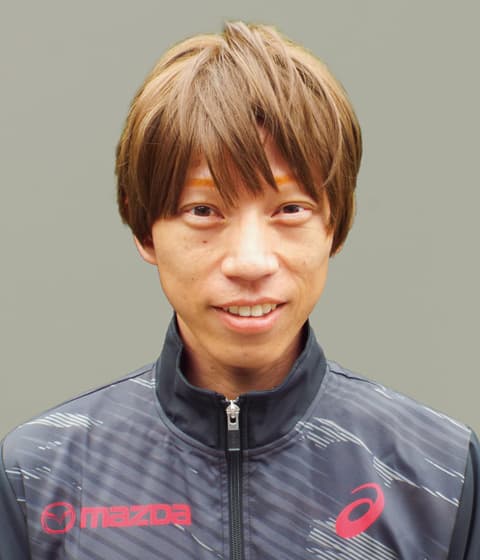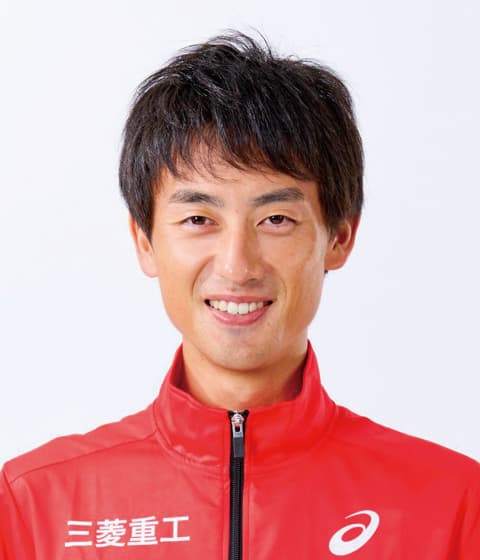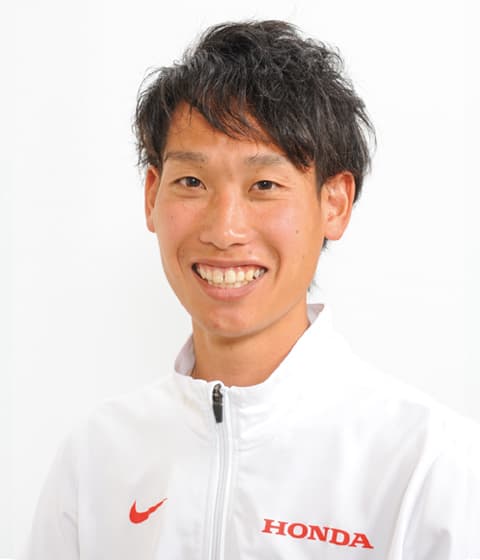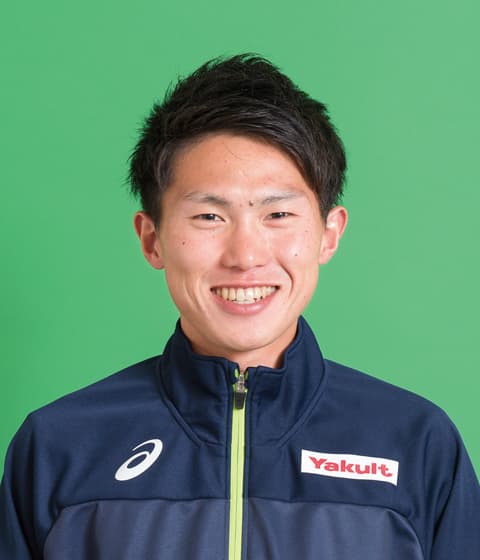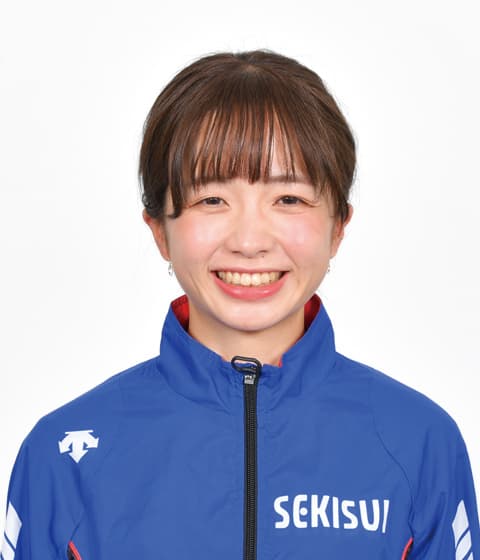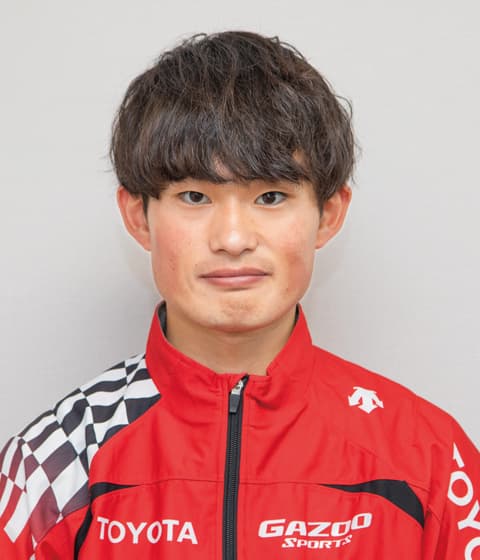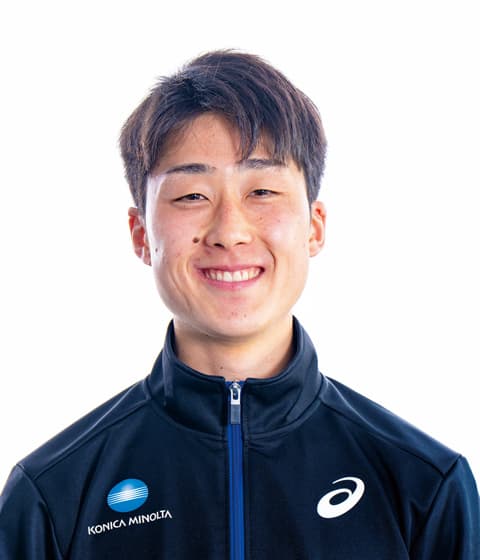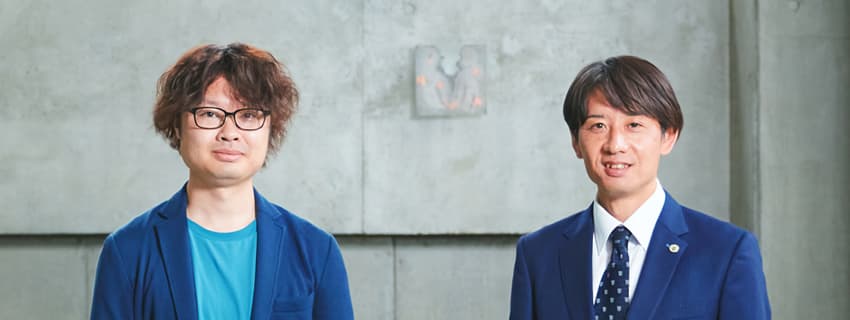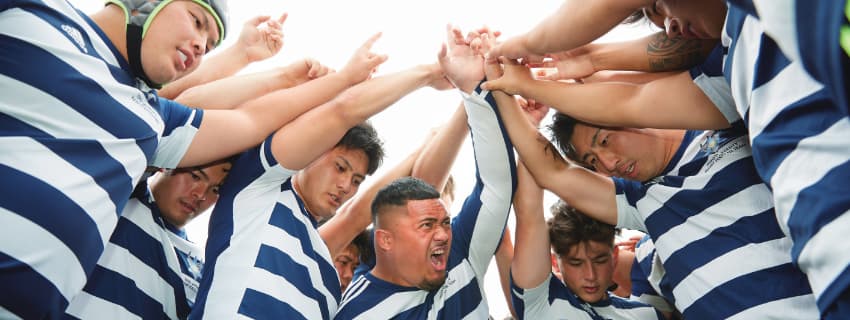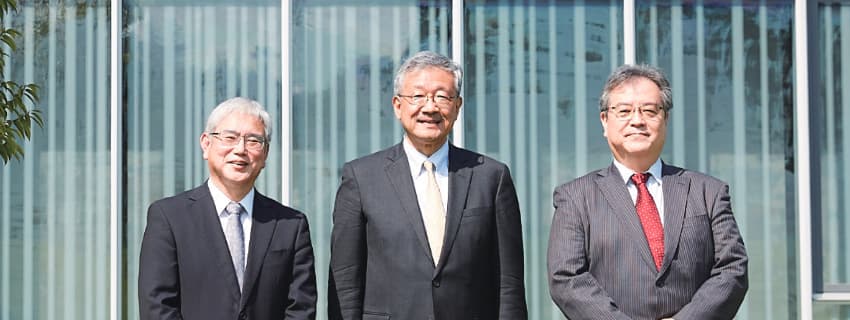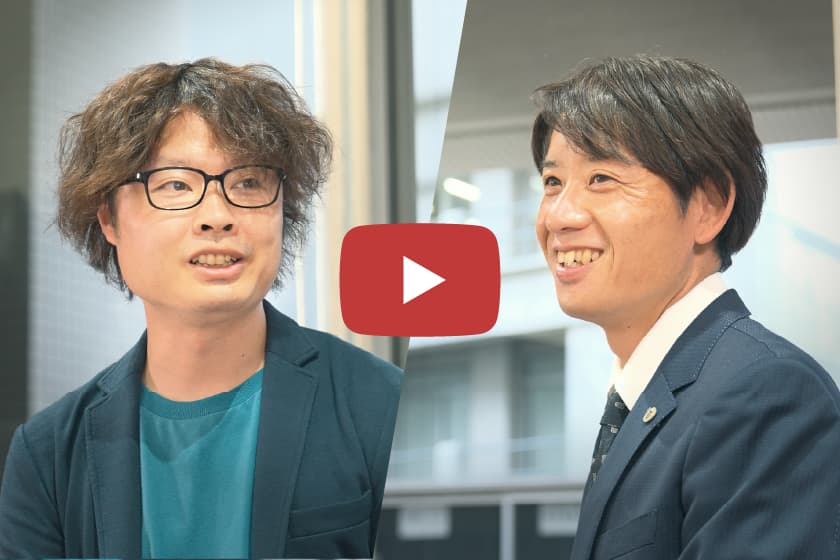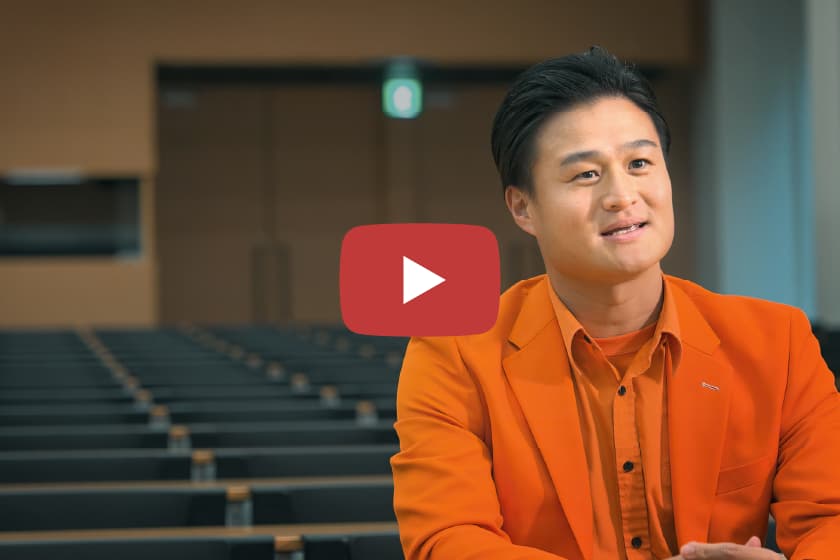The 100th Hakone Ekiden
The 100th Tokyo-Hakone Round-Trip College Ekiden Race will be held during the New Year holidays of 2024. Toyo University will be making its 82nd appearance in this momentous event. Coach Toshiyuki Sakai, who ran in the Hakone Ekiden three times as a student, and Ryuji Kashiwabara, who ran the 5th Leg when the university won its first overall title and was nicknamed the “God of the Mountain,” discussed their thoughts on the race.

Mr. Kashiwabara is originally from Fukushima Prefecture. As a freshman, he set a new sectional record in Leg 5 of the 85th Hakone Ekiden, leading the Toyo University team to its first-ever overall title. He won the 5th Leg sectional prize in four consecutive years and earned the nickname “God of the Mountain.” After graduating, he was active as a member of Fujitsu Track & Field Team. He has been involved in sports promotion at Fujitsu’s Corporate Sports Promotion Office since his retirement from active competition.
Mr. Sakai is originally from Fukushima Prefecture. He ran in the Hakone Ekiden for three consecutive years, beginning with his freshman year, and served as the Toyo University team’s captain in his senior year. He won the All-Japan Men’s Corporate Team Ekiden Championships (New Year Ekiden) with the team now known as Konica Minolta in three consecutive years beginning in 2001. After retiring from competition, he taught at his high school alma mater before assuming his current position in 2009.
The 100th Tokyo-Hakone Round-Trip College Ekiden Race will be held during the New Year holidays of 2024. Toyo University will be making its 82nd appearance in this momentous event.
Coach Toshiyuki Sakai, who ran in the Hakone Ekiden three times as a student, and Ryuji Kashiwabara, who ran the 5th Leg when the university won its first overall title and was nicknamed the “God of the Mountain,” discussed their thoughts on the race.
